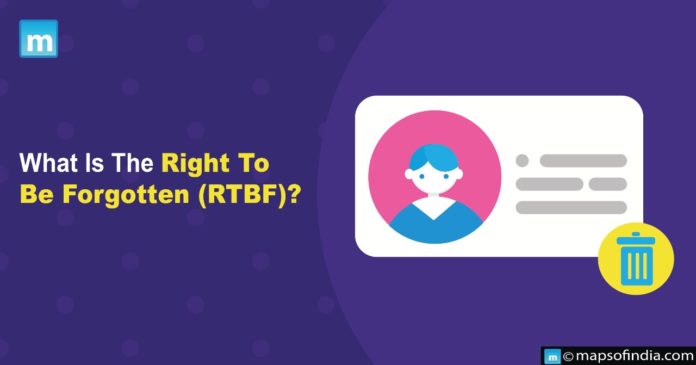The Union Government recently notified the Delhi High Court that the Right to Privacy encompasses the Right to Be Forgotten (RTBF), a legal doctrine with roots in international law. According to a Supreme Court decision, the Right to Privacy comprises RTBF and the Right to Be Left Alone (RLTA).
What is the Right to Privacy?
In the 2017 Puttaswamy v. Union of India decision, the Supreme Court proclaimed the Right to Privacy a Fundamental Right. According to Article 21 of the Constitution and its Part III, the right to privacy is protected as an integral part of the right to life and personal liberty.
Let’s discuss the Right To Be Forgotten (RTBF)
The right to be forgotten is the ability to request that personally identifiable information that is publicly accessible be deleted from databases, websites, search engines, and other public platforms once it is no longer required or relevant.
Following the Court of Justice of the European Union’s (“CJEU”) ruling in the Google Spain case in 2014, the RTBF acquired prominence. The RTBF was a component of the greater right to privacy in the Indian context, according to the Highest Court in Puttaswamy v. Union of India, 2017. The right to fundamental freedoms is partly derived from the right to dignity under Article 21 of the Indian Constitution.
Concerns with RTBF
- The clash between Information and Privacy
The existence of RTBF relies on how other competing rights, such as the liberty of expression or other publication rights, are balanced in a particular context. For instance, a person could wish to remove links to material about his criminal history and make it challenging for people to find specific journalistic pieces about him when they Google him. This puts the individual’s right to privacy, derived from Article 21, in direct conflict with the media’s right to cover stories, derived from Article 19.
- Enforceability Against Private Citizens
Typically, a private party will be held liable for the RTBF. This raises the issue of whether fundamental rights, typically enforceable against the state, may be applied to private individuals. Only Articles 15(2), 17, and 23 offer defenses against private actions taken by private parties that are contested because they violate the Constitution.
Ambiguous decisions
In the absence of a law on data protection to codify RTBF, several high courts have made inconsistent and odd decisions regarding the right in recent years. The application of RTBF has been frequently granted or refused by Indian courts, but they have utterly disregarded the broader constitutional issues raised by it.
Governmental measures to safeguard the privacy
The Personal Data Protection Bill in 2019
This bill enables the parliament to set up a Data Protection Authority of India for the objectives mentioned above and matters about an individual’s data and to protect persons’ privacy about their Personal Data. In this case, the recommendations of the B N Srikrishna Committee (2018) were taken into account.
Information Technology Act, 2000
It offers protection against certain data breaches involving computer systems. It has clauses that forbid the unauthorised use of computers, computer systems, and the data kept on them.




